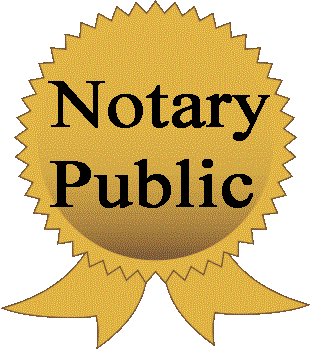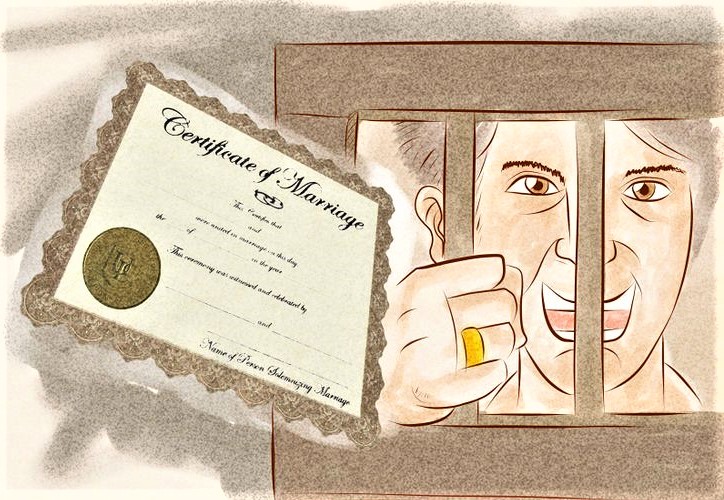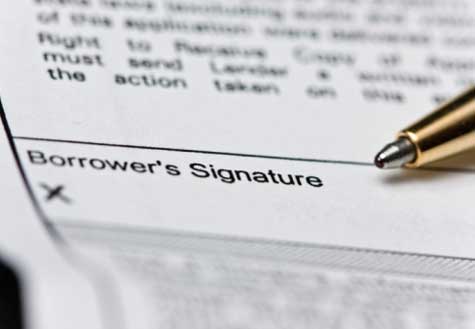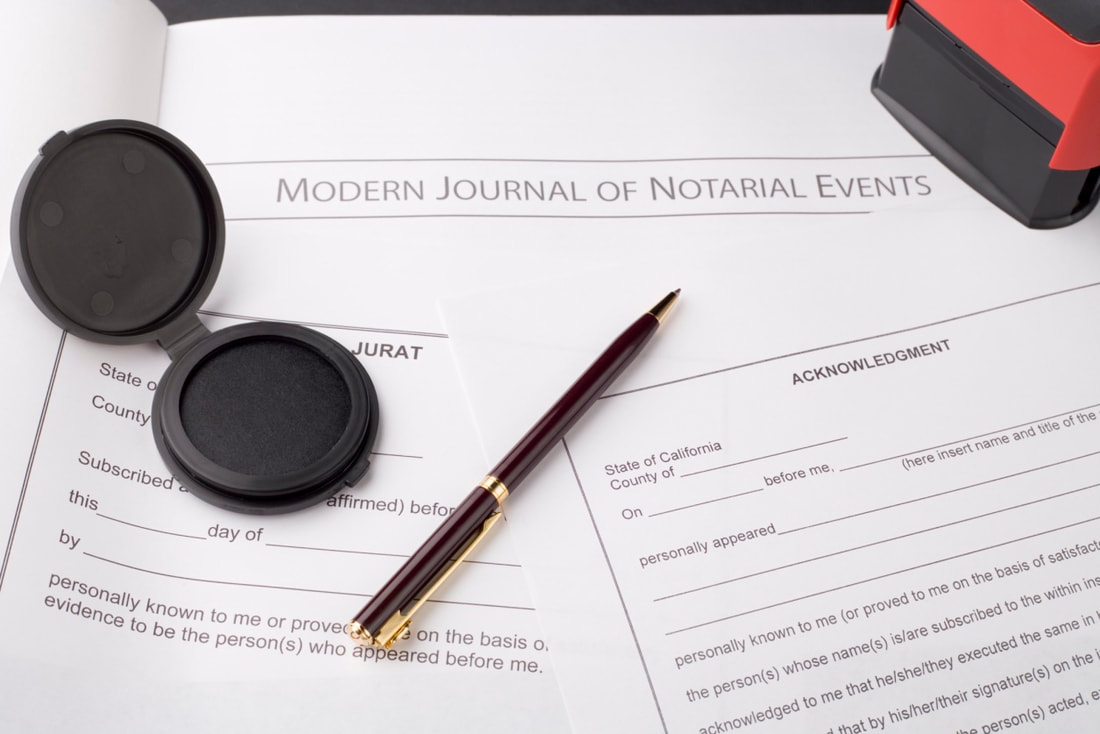 Customer FAQ's and legal advice vs legal information Legal advice is when an attorney applies his or her legal expertise to your specific fact situation, and tells you how you should proceed. This includes, but is not limited to: ⦁ Representing a person before a court or other government institution ⦁ Creates duties or responsibilities for the person offering advice ⦁ Affects the rights or responsibilities of the person seeking advice A notary public is prohibited from practicing law, unless the notary public is also a licensed California attorney. (California Government Code section 8214.1(g); California Business and Professions Code section 6215.) Legal information can be given by anyone who is knowledgeable on the law. It is simply a statement of what the law is, without any application to your particular situation, leaving up to you the decision of how to proceed. What should I do with my Advanced Healthcare Directive Now That I've Had It Notarized? California maintains an Advance Directive Registry. By filing your advance directive with the registry, where the health care provider and loved ones may be able to find a copy of the directive in the event the patient is unable to provide one. More about the registry, including instructions on how to file your advance directive, at http://www.sos.ca.gov/ahcdr/forms.htm. Advanced Healthcare Directives PROBATE CODE SECTION 4700-4701 Should I record my power of attorney just in case? Power of attorney requirements vary by state, but typically are signed by the principal and need to be witnessed and/or acknowledged before a notary public. Usually, powers of attorney do not need to be recorded. However, powers of attorney dealing with the sale and purchase of real estate must be recorded. In California, a power of attorney must either be acknowledged in front of a notary or signed by two witnesses. While either method of validation will work, consider doing both. By signing in front of a notary, you expel any doubt as to the validity of the principal's signature. Also, by having two witnesses sign the power of attorney, you are also creating parties who can testify as to the validity of the document. A natural person having the capacity to contract may execute a power of attorney. PROBATE CODE SECTION 4120-4130 4120. What is a Domestic Partnership? Wait why do I have to fill this out, we are not gay! (this comes up during a mortgage loan signing) ⦁ A domestic partnership is an interpersonal relationship between two individuals who live together and share a common domestic life but are not married (to each other or to anyone else). ⦁ Registered domestic partners have the same rights, protections, and benefits, and same responsibilities, obligations, and duties , as spouses.” Cal. Fam. Code § 297.5(a). These protections apply as of the date a couple registered as domestic partners with the state of California. More info can be found at http://www.nclrights.org/ Declaration of Domestic Partnership From Can be found in the California Secretary Of State website http://www.sos.ca.gov/registries/domestic-partners-registry/ Can you provide or help me draft a Grant Deed, Power of Attorney or Will? A notary public is prohibited from practicing law, unless the notary public is also a licensed California attorney. (California Government Code section 8214.1(g); California Business and Professions Code section 6215.) Legal forms and documents can be found here http://saclaw.org/legal-forms/ Customer service is important, and therefore helping them understand the difference of what a notary can and cannot do is part of good customer service and providing them with the right information is also key to keeping your customers happy !
0 Comments
Intended Spouse:
Learn the rules. Each facility has its own rules concerning marriage. Talk with the chaplain, warden or other appropriate official 1. You will need to obtain an “Inability to Appear” package from the local County Clerk’s Office. 2. The County Clerk’s Office will require an official “Notice of Incarcerated Individual” (Satisfactory Proof of incarceration) If for sufficient reason, either or both of the parties to be married are physically unable to appear in person before the county clerk, a confidential marriage license may be issued by the county clerk to the person solemnizing the marriage if: ⦁ The signature of any party to be married who is unable to appear in person before the county clerk is authenticated by a notary public , prior to the county clerk issuing the confidential marriage license 3. Contact the prison chaplain, warden or other appropriate official, who will make arrangements, during normal facility visiting times, for the inmate to sign an “Affidavit of Inability to Appear and Request for Issuance of a Marriage License” in the presence a notary. ⦁ Most facilities have a list of approved Notaries ask the litigation coordinator to provide the Notary's information. ⦁ Some facilities DO not keep an approved Notary List & you can hire any outside Mobile or Traveling Notary to coordinate the appointment . 4. The intended spouse and Marriage Officiant must go to the County Clerk’s Office to take an oath and receive a marriage license. The Marriage Officiant will need to stand in for inmate during this process. 5. After receiving a marriage license, the intended spouse will need to contact the prison chaplain, warden or other appropriate official of the facility where the inmate is housed to schedule the marriage ceremony during normal facility visiting times 6. The intended spouse, Marriage Officiant, witness and/or interpreter will be searched upon entering the facility  A Structured Settlement can add certainty to a claimant’s financial situation by establishing payments that are guaranteed and not impacted by market fluctuations or downturns in the economy. What is a Structured Settlement?: When someone is injured and a lawsuit results, often, that lawsuit is settled and both parties agree on compensation. This compensation is often paid out over time in regular payments as a structured settlement. Structured Settlements is a negotiated insurance of financial arrangement where the claimant agrees to resolve a personal injury claim by receiving some part of the settlement in the form of periodic payments on an agreed schedule. Victim agrees to receive periodic payments over the long-term rather than a lump sum up front. It is often designed to provide victims who are sick or have been hurt with a steady stream of future income for life. Most Common Documents in a Structured Settlement or Sale of a Structured Settlement which need to be Notarized Transfer Agreement Transfer" means any sale, assignment, pledge, hypothecation, or other form of alienation or encumbrance made for consideration. (o) "Transfer agreement" means the agreement providing for the transfer, and any other document used to effectuate the transfer, from the payee to the transferee of structured settlement payment rights of a structured settlement agreement. Settlement Agreement "Structured settlement agreement" means an arrangement for periodic payment of damages established by settlement or judgment in resolution of a tort claim in which the payment of the judgment or award is paid in whole, or in part, in periodic tax-free payments rather than a lump-sum payment. Agreement Sale Structured Settlement: See “Transfer Agreement” Irrevocable Designation of Transferee as Beneficiary: "Interested parties" means, with respect to a structured settlement agreement, the payee, the payee's attorney, any beneficiary irrevocably designated under the annuity contract to receive payments following the payee's death, the annuity issuer, the structured settlement obligator, and any other party who has continuing rights or obligations under the structured settlement Agreement. If the designated beneficiary is a minor, the beneficiary's parent or guardian shall be an interested party. “Dependents" include the payee's spouse and minor children and all other family members and other persons for whom the payee is legally obligated to provide support, including alimony. Authorization to Release Info: Regarding liens, judgments in connection to any dependent as to child support etc… Authorization to Release Info: former client, of payee, the 'payee,' has entered into a contract with to transfer and assign certain future structured settlement payment rights. Funding Instructions: Funds provided in the Purchase Price as defined in the sale agreement. Return of Non Assigned Payments: Future Pass thru Payment Issuance (Check or ACH) A Notary Public can facilitate the closing of the documents
Definition Terms Reference: CA INSURANCE CODE SECTION 10134-10139.5 GOVERNMENT CODE SECTION 984 Attention Auto Insurance Carriers
And Salvage Companies Announcing Auto Title Notary for Total Loss Settlements Auto Title Notary is one of the many products offered by Notary Services etc. which allows for the electronic assignment of title documents, significantly shortening the cycle time for total loss settlements, saving customers time and money. This service directly allows for more management of costs, while simultaneously boosting customer satisfaction and retention. Carriers that choose Auto Title Notary as their document delivery service can access a mobile notary who will travel directly to the vehicle owner and execute documents on the spot. The electronic assignment (e-docs) ability allows the notary requirement to be satisfied at a faster rate, leading to an overall enhancement of the customer experience. In addition, improved cycle time leads to a reduction in costs, as insurance carriers are able to save on vehicle rental fees and to better allocate employee bandwidth. The mobile aspect of Auto Title Notary markedly reduces the time typically required for a total loss settlement to be processed, Because the notary can meet the vehicle owner at a place and time of their choosing, rather than requiring the vehicle owner to execute the entire process on their own, the results are distinctively more efficient and more accurate, giving customers a greater sense of relief." Insurance carriers remove the step in the claims process that customers find most inconvenient, by deploying a mobile notary, which in turn leads to increased policyholder satisfaction and retention. Dependability & Accuracy as well as Customer Satisfaction is top priority at Notary Services etc. by striving to innovate as a Notary Service to provider, to create a hassle free experience for the client and their customers. Thank You Notary Services etc. www.notaryservicesetc.com Simple Solutions Simply Better for Business! Notaries working as loan signing agents really do get unfair press sometimes. This displeasure, generally from the lender side, is often undeserved and typically stems from clients not fully understanding the actual limitations of the Notary’s role in a signing. Client frustration with a Notary generally stems from expecting the notary to do things that are actually outside of the Notary’s prescribed function. It is very important that clients understand what a Notary is and is not able to do at a signing.
When the lender’s loan documents are completed and available, the escrow officer will arrange for a Notary to sign with the borrowers this is often a Mobile Notary who will drive out to meet the borrowers at their home or a mutually convenient location. The escrow / signing company will entrust the documents to the Notary and the Notary will be responsible to get the documents signed by the borrowers, notarize the documents that require Notarization, and return the documents to escrow. Once the escrow officer has received the documents she will review each document to ensure they were signed and completed. Then she will coordinate returning the documents to the lender for funding. A Notary Public is a neutral party to the transaction. His job at a loan document signing is to witness the borrower’s signature and notarize the documents that require Notarization such as, Deed of Trust, Grand Deed, Affidavits, Power of Attorney and miscellaneous lender documents. Prior to the signing the Notary should explain to the borrowers which documents the Notary is there to acknowledge and what she is there to do. The Notary is generally also is expected to ensure that the borrowers sign and date the documents appropriately. It is important for clients to understand that the Notary is not the lender’s substitute or surrogate and cannot give any legal advice or interpret the loan documents for the borrowers. A Notary may identify documents and point out the terms of the loan transactions but should not be expected to answer questions specific to the terms and conditions of the loan. It is also not the job of the notary to clarify any information regarding the transaction regarding who is paying what, why or when etc . The lender or loan officer is the one who can answer questions about the loan. However, the Loan Officer or Mortgage Representative may or may not be present at the loan document signing. Often the LO will review pertinent information of the loan with the client prior to the signing. Borrowers should be sure to get a contact phone number for the loan officer prior to signing. So they may reach them at the closing table to address any questions or concerns they may have. In order for the borrowers to feel at ease during a signing it’s often a good idea for them to read through all their documents prior to the signing appointment. They can ask for a copy of the documents in advance and review them for accuracy, errors, surprises, or documents they have difficulty understanding. Also, borrowers for owner-occupied refinances should know that they have a three day right to cancel the loan. If there are any documents or terms that they are concerned about, they can sign the loan document package and seek to have those items further clarified after the signing. If they still have concerns, they will have three days to cancel the loan before it funds Understanding the details of the notary’s role is important for all parties involved. This can help to avoid confusion during a transaction and protect notaries from incorrect assumptions about what it is or is not their job to do.  Remote closings are a convenient way to close on your new home loan at your place of work, coffee shop, hotel lobby (if you’re traveling), or even at your families kitchen table. Remote closings have been around a little longer and are now available pretty much everywhere and could mean more than added convenience for consumers There are ways a Remote Closing can be carried out: Here are examples of two types of Remote Closings.
Ask your lender, Realtor, or Title Company for recommendations early on in the process on how to find a Mobile Notary to facilitate the signing of your loan documents at your convenience. Then all you have to do is pick a perfect place for you to close on your new home—your way.  A Loan-Signing agent for a bank or other financial institution is often a Notary public, However the Notary may are may not notarize documents for a non-bank related transaction ever if it’s your bank. Also, most banks will not notarize documents for non-bank customers as well. Call your local bank and inquire if they have a notary available and inform the notary in advance about the documents you have to make sure the bank does not have a policy that does not allow them to notarize a non-bank document. Documents that might require notarization:
If you go to your bank and find that the Notary on staff will not notarize your document because the document is a non-bank or non-customer, Search for your nearest Notary by typing “Notary Public” and the zip code of where you are, this will narrow the search & give you a precise location of the nearest notary. Most are mobile and can come to you!  How To Hire A #mobilenotarypublic for Your Next Refinance You've been working with your #loanofficer officer or #broker for some time now, and its getting close to sign all the important paperwork. The loan officer informs you that the #escrowoffice is open 9-5, Monday through Friday. You and your spouse work until 6 each day, and requesting time off to sign loan paperwork doesn't seem like the best idea...so, what do you do? You tell your loan officer you'd like to sign at home. At 7pm. Or 9pm. Heck, even midnight if you'd like! Just tell your loan officer that you'd like to have a mobile notary come to your home to sign the paperwork. You may have to pay a extra fee, but hey, no work missed, and you don't have to find a sitter for the kids! If you are a busy professional, or just want the convenience and comfort of signing your loan paperwork at your choice of time and place, make sure you ask for a mobile notary the next time you sign loan paperwork. Most mobile notaries work all times of the day, and coming to your house in the evening is not a problem, in fact, it's pretty normal. Why Not Just Sign At The Escrow Office? 99% of escrow offices close at 5pm. Do you get off work by then? I didn't think so. Having to rearrange your schedule seems silly when an easy, and low cost solution can be found to the problem by hiring a mobile notary. The notary will work with your schedule, so you can sign your important paperwork when and where you want to. Also, just like the escrow office, the notary is an impartial witness, and so you won't feel any pressure to sign if you don't feel comfortable. Do I Have To Find My Own Notary? Do I Have To Find My Own Notary? Normally no. Your broker should set up a notary for you, you can always refer the broker to find a #notary. That's it. Have a great time signing your papers, in the comfort of your own home. You've just signed that lucrative contract to build a million widgets, and you're feeling great. Your company is in the black, employee morale is high and you had a notary public witness you signing that contract. So if any questions pertaining to the authenticity of your signature arise in the future, you are covered. What? You did not have your signature notarized? That's a big mistake, having a notary public witness a signature is a "powerful risk-management tool to prevent fraud and identity theft." A notary public is a person with a special commission from a state or county government that allows him or her to acknowledge the official witnessing of another person's signature on a document having a signature on a contract notarized is important for a few reasons. One of the most important ones is that under the Federal Rules of Evidence, a notarized document is considered "self-authenticating." The same is true under the rules of evidence in effect in each state, although there are a few states that don't follow this norm. When a document is self-authenticating, the signers of the contract do not need to testify in court to verify the authenticity of their signatures. That saves a lot of time and money. Having a document notarized is "a huge strategic advantage" in litigation. While the duties of public notaries might be simple to execute, they are extremely important. First, a notary cannot attest to witnessing a signature unless the signer signs the document in their presence. To ensure the parties signing the document are the real people who are supposed to do so, some states require signers to present identification to the notary. The notary must also ascertain whether people are signing the document voluntarily or under duress. This is especially crucial when a senior citizen or someone with limited English skills is signing a document. In some states, notaries are required to maintain a journal of the documents they notarize. The journal details the type of identification presented to the notary and a basic description of the document he or she notarized. |
Archives
January 2024
Categories |





 RSS Feed
RSS Feed